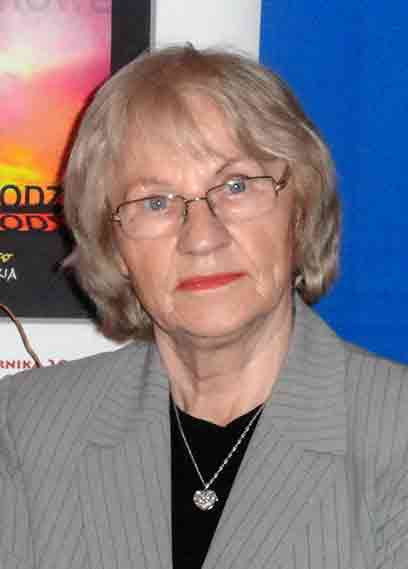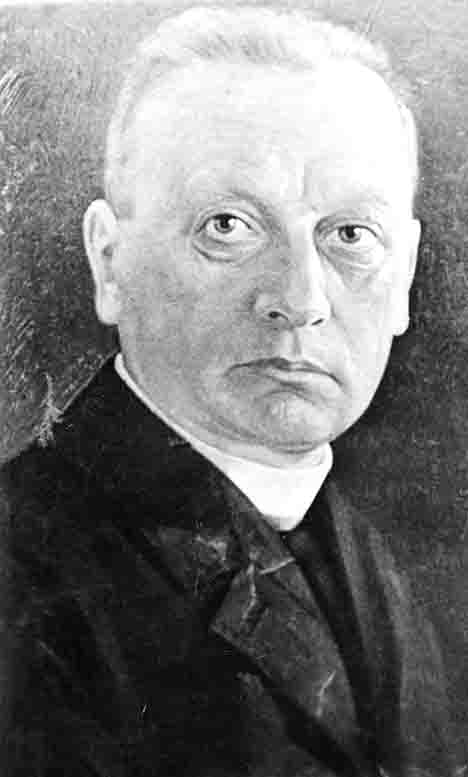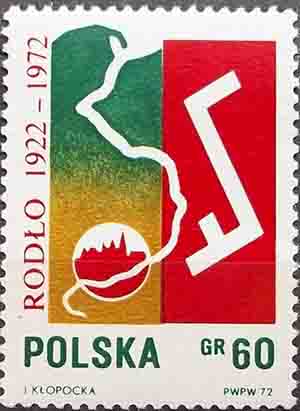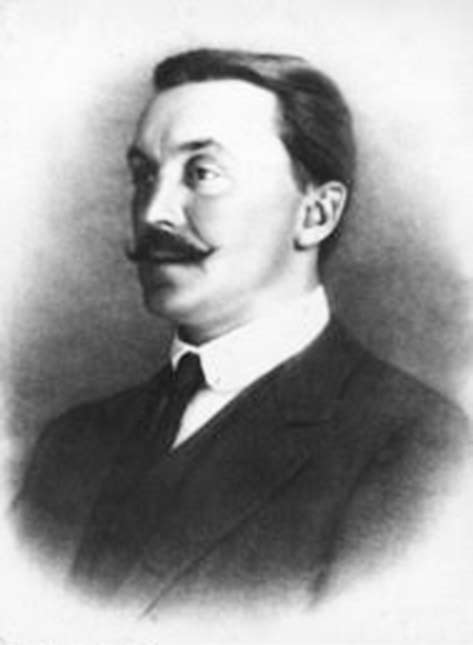The end of World War I in 1918 brought Europe and the world a whole new political and economic reality. Monarchies have fallen, many nations regained independence, but a new ideological threat has also arisen, which would bring a new war in the near future. That threat was communism and fascism. The borders between countries have shifted or were shaped anew, but the population in most cases stayed where they were. In the new demographic reality, the situation of national minorities, including the Polish minority in Germany and the German minority in Poland, was an important problem to be solved. According to German estimates, the number of Poles in Germany according to the 1910 census, calculated on the basis of German statistical data in 1923 for the territories remaining in the Reich, was 1,517,000. In 1939, taking into account the birth rate, the number of Poles living in the territories belonging to the Third Reich could be as high as 1,800,000. According to the same source, the number of Germans living in the territory of the Second Polish Republic was 700,000.
In the years 1918-1922, the borders of the new Polish state were formed with all its neighbors. The final shape of the western border was preceded by many important events: three Silesian Uprisings, the Greater Poland Uprising, plebiscites in Silesia and Warmia and Mazury, and the population exchange between Poland and Germany. Under the provisions of the Treaty of Versailles (June 28, 1919), where borders changed, the choice of place of residence was left to the population. On this basis, a date was set to January 10, 1922, by which the residents could choose their country of residence, Poland or Germany, and move with all their property to a selected place without any customs duties. Poles living in the indigenous Polish lands, which did not become part of the Second Polish Republic, as well as emigrants who were looking for gainful employment in Germany, especially in the North Rhine-Westphalia, or in the Berlin district, had to decide in their own consciousness whether to leave or to stay.
Patriotic considerations spoke in favor of returning to help the motherland, which was then striving for independence. Outstanding scholars and professors (Ignacy Mościcki, Gabriel Narutowicz, Stanisław Zwierzchowski, ...) returned from emigration to Poland to organize its political and scientific life. This was followed by a wave of repatriations from the borderlands of Greater Poland. Returns were considered acts of patriotism. The decision to stay was considered to be on the side of Prussian Germany, or as work for the enemy. Coming back was not easy. For outstanding Poles, it often meant the loss of prestigious scientific positions, for agricultural and factory workers, the necessity of a new emigration in search of work, which was scarce for them in the newly established Homeland. In times of uncertainty and doubts, the voice of Father Bolesław Domański, the parish priest from Zakrzew, was very important: "God has not left us on this earth without a reason." These words became the foundation of the resulting organization Association of Poles in Germany.
At Versailles, the Polish government was obliged to sign the so-called a minority treaty, thanks to which the German minority in Poland obtained special protection of international law, and the national minorities in Germany remained without formal protection. The German minority was in a better position. In the years 1922-1928, the German minority in Poland had 17-21 deputies and 5 senators, and after 1929 - 5 deputies and senators. In the interwar period, in the Second Polish Republic, there were over 500 German elementary and 40 secondary schools. The German minority in Poland benefited from the international support obtained in Versailles and the wide interest of the European public. Unfortunately, Poles did not have such privileges, they did not even obtain the status of a national minority. The only guarantee for Poles living in the territory of the Republic of Weimar, and then the Third Reich, was Art. 13 of the Weimar constitution adopted on August 11, 1919, which read: "Foreign parts of the Reich's population may not be legally or administratively restricted in free national development, in particular in the use of the mother tongue in teaching, administration and judiciary." This provision has never been fully respected. Both the administrative authorities, the press, and the population were hostile towards Poles. This is evidenced by the fact that on June 30, 1919, the imperial army marshal Paul von Hindenburg said in Opole: “Germany's greatest defeat at Versailles is the reconstruction of independent Poland. Germany will never come to terms with it. And they didn't.
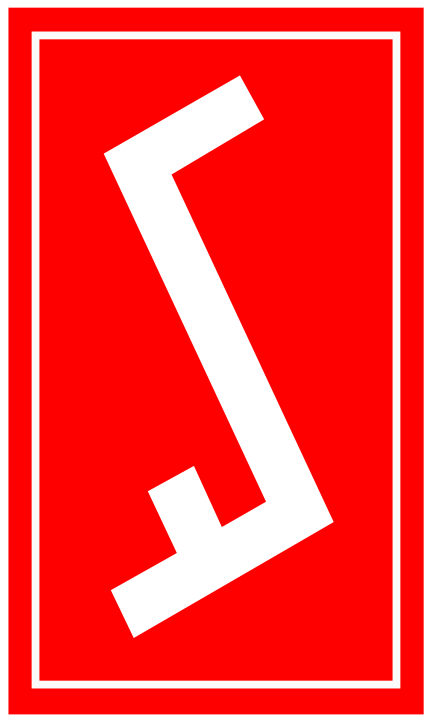
The "Rodlo" sign of the Association of Poles in Germany (Source: Wikipedia)
After the First World War, there were approximately one-and-a-half million inhabitants speaking Polish as their mother tongue in Germany. This number was made up of groups of Poles of various sizes. The largest number lived in Opole Silesia - about 800,000. There were quite large clusters in Masuria and in the vicinity of Złotów and Piła. About 300,000 Poles worked in Westphalia and quite a significant number of Polish workers lived in Berlin. The rest was scattered along the Versailles-established border. Factory and agricultural workers predominated among the 1.5 million Poles. The number of teachers, lawyers, doctors, journalists and people with higher education was very modest. National awareness was not at the highest level either. First, people had to satisfy their living needs before being able to reflect on social and national matters later. In such a reality the Polish people in Germany came to live and act. Regional organizations began to appear to defend the interests of this population. In May 1919, the National Committee of Poles Abroad was established in Berlin, and the Executive Committee of Poles in Germany in Bohun; On November 30, 1920, the Union of Poles in East Prussia was established with its seat in Olsztyn, and in 1921, the Polish Committee for Upper Silesia was established in Bytom. The leaders of regional organizations, and then the founders of the Union of Poles in Germany, although young (Stanisław Sierakowski-33, Jan Kaczmarek-27, Arka Bożek-23), were brave people and made decisions quickly. They realized that only joint actions to defend the Polish population in Germany would be effective. On August 27, 1922, at the congress of delegates of all regional organizations in Berlin, it was decided to merge them into the Association of Poles in Germany (Związek Polaków w Niemczech, ZPwN). The German administration authorities delayed the registration of the association. In November of that year, Poles introduced two deputies from the list of national minorities to the Landtag (parliament), which definitely forced registration. The date of August 27, 1922 is considered to be the date of the ZPwN establishment, although the registration took place on December 3, 1922. At the first general meeting, an appeal to Poles in Germany was issued: "We, who remained in Germany, as citizens of the German state, must unite in working together if we do not want to lose our native faith, the Polish language and our family culture”. The authorities of the Union were also elected. Stanisław Sierakowski, a distinguished activist in defense of Polishness in Masuria, became the first president. He held this function until 1927. The post of secretary general was entrusted to Dr. Jan Kaczmarek, a Pole born in Westphalia, Germany. They will both write a beautiful page in the history of Poles united under the sign of RODŁO.
Translated from Polish by Andrew Woźniewicz.



